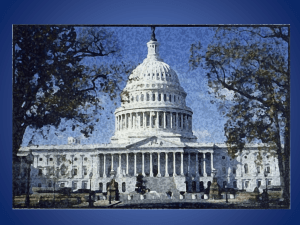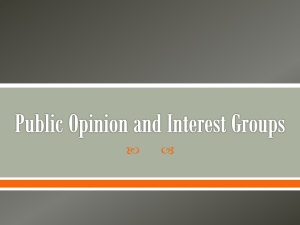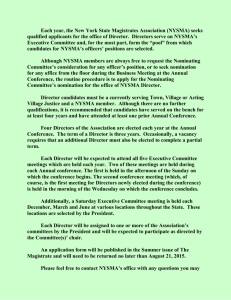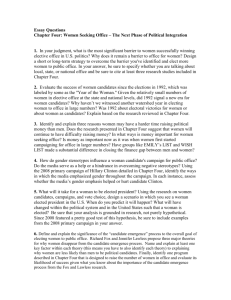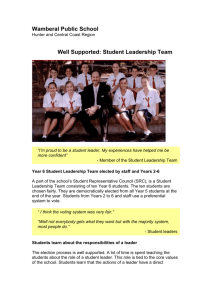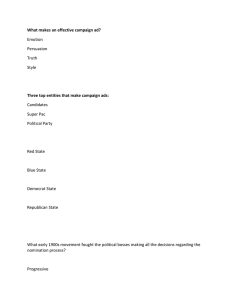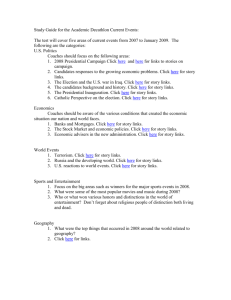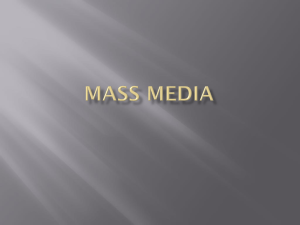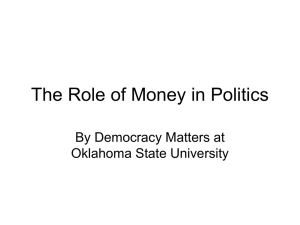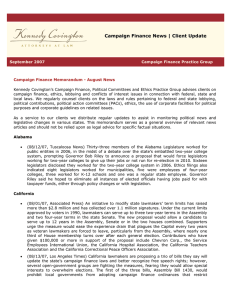Interest Groups
advertisement
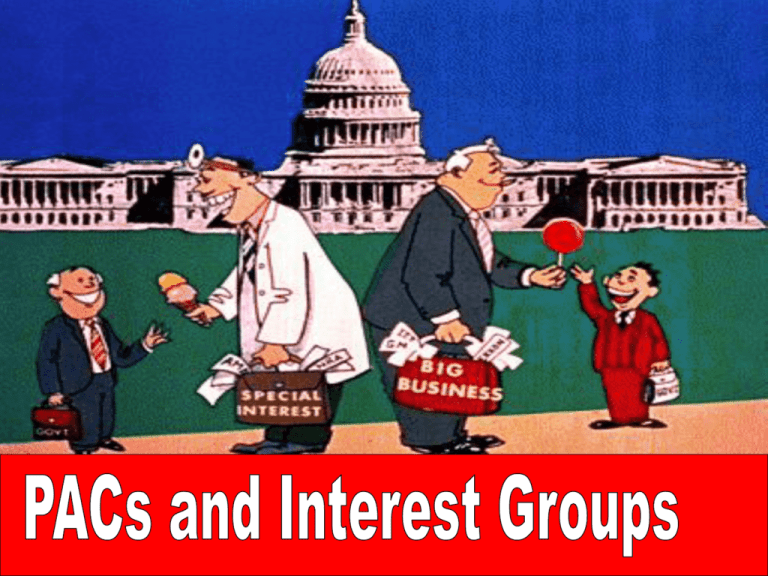
Political Parties vs. Interest Groups Interest Group: Individuals who organize to influence the government’s programs and policies Political Parties Interest Groups 1. Nominate candidates to run for elective office 1. May support certain candidates for office, but they do not nominate their own candidates 2. Focus on a broad range of issues to appeal to a wide range of the electorate 2. Often take a narrow focus on a specific issue, such as gun control, abortion, or the environment 3. Compete for control of the legislative branch by trying to win the majority of the seats in Congress 3. Compete for influence over elected officials so that the elected officials decide public policy issues in the interest group’s favor People join or create special interest groups to encourage laws that suit them. Special interest groups range in size from one to millions. They represent businesses, faiths, regions, or ideologies. Interest groups alert the news media to issues and provide information in an attempt to influence public opinion. Interest groups advise members on the policies and voting records of politicians so they can vote for the lawmakers that support their views. Interest groups hire lobbyists to persuade lawmakers to support the group’s goals and ideas. Lobbyists alert interest groups to proposed legislation that affects them and reports lawmaker’s positions on key bills. Lobbyists persuade political parties to add interest group’s issues to the party platform and arrange for soft money contributions to be made to the party. Lobbyists develop contacts to ensure they can reach key lawmakers. They persuade lawmakers to adopt the interest group’s views, provide the information on the effects of specific legislation and may help write bills. They sponsor opinion polls to demonstrate support for an issue. They also help lawmakers raise campaign funds. Parties give extra campaign support to candidates in crucial races. A few well-known interest groups… MADD NOW AARP NAACP NRA NEA ABA AMA NARAL NRLC NORML Mothers Against Drunk Driving National Organization for Women American Association of Retired People National Association for the Advancement of Colored People National Rifle Association National Education Association American Bar Association American Medical Association National Abortion Rights Action League National Right to Life Campaign National Organization for the Reform of Marijuana Laws League of Women Voters * US Chamber of Commerce Sierra Club * World Wildlife Federation * Human Rights Campaign ZPG * PETA * Christian Coalition * Common Cause * AFL-CIO Interest Groups vs. Political Action Committees (PAC) Political Action Committee: A private group that raises and distributes funds for use in election campaigns Interest Groups 1. Often take a narrow focus on a specific issue, such as gun control, abortion, or the environment 2. Compete for influence over already elected officials so that they decide public policy issues in the interest group’s favor 3. CANNOT give money to candidates (only influence) Political Action Committees 1. Often take a narrow focus on a specific issue, such as business or labor practices 2. Compete for influence over the election process, so that candidates who support the PAC’s issues will get elected 3. CAN give money to a candidate
